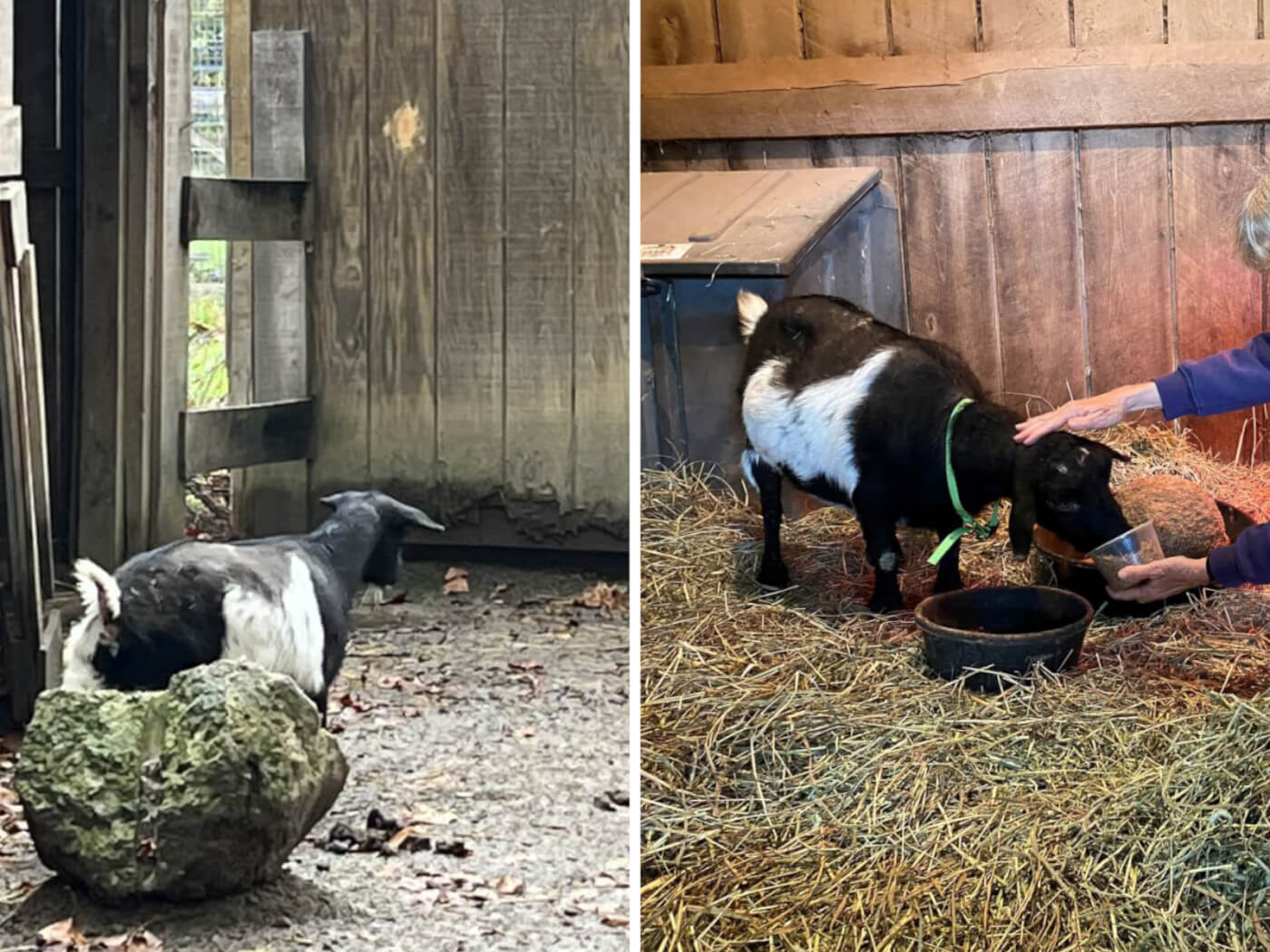A Rescue for the History Books: PETA Rescues 72 Animals From Tri-State Zoological Park
In the biggest roadside zoo rescue in PETA’s history, Tri-State Zoological Park—a longtime PETA target—has closed its doors and surrendered 72 animals, including bears, tortoises, and a squirrel monkey to lush, peaceful new homes.
This landmark victory follows years of our campaigns and two lawsuits that we filed for the animals who were suffering miserably at what was considered one of the worst roadside zoos in the U.S. Now, an unprecedented 14 reputable sanctuaries and accredited zoos from across the country have joined with us to finally give them the lives they’ve always deserved.
This massive rescue couldn’t have come sooner, as the Maryland roadside hellhole confined many of the animals to filthy, decrepit enclosures; deprived them of adequate veterinary care; failed to provide them with appropriate environmental enrichment; and much more.
Meet Some of the Animals Who Are Being Rescued
A Squirrel Monkey
Tri-State held a squirrel monkey in solitary confinement for nearly 20 years. The facility crudely named him “Spazz,” an ableist slur, because he appeared anxious and terrified—likely because he had been confined to an enclosure surrounded by his natural predators. Now known as Hoggle, he’s safe at his new home, the Detroit Zoo, where he will have the opportunity to make a new squirrel monkey friend, Ziggy.
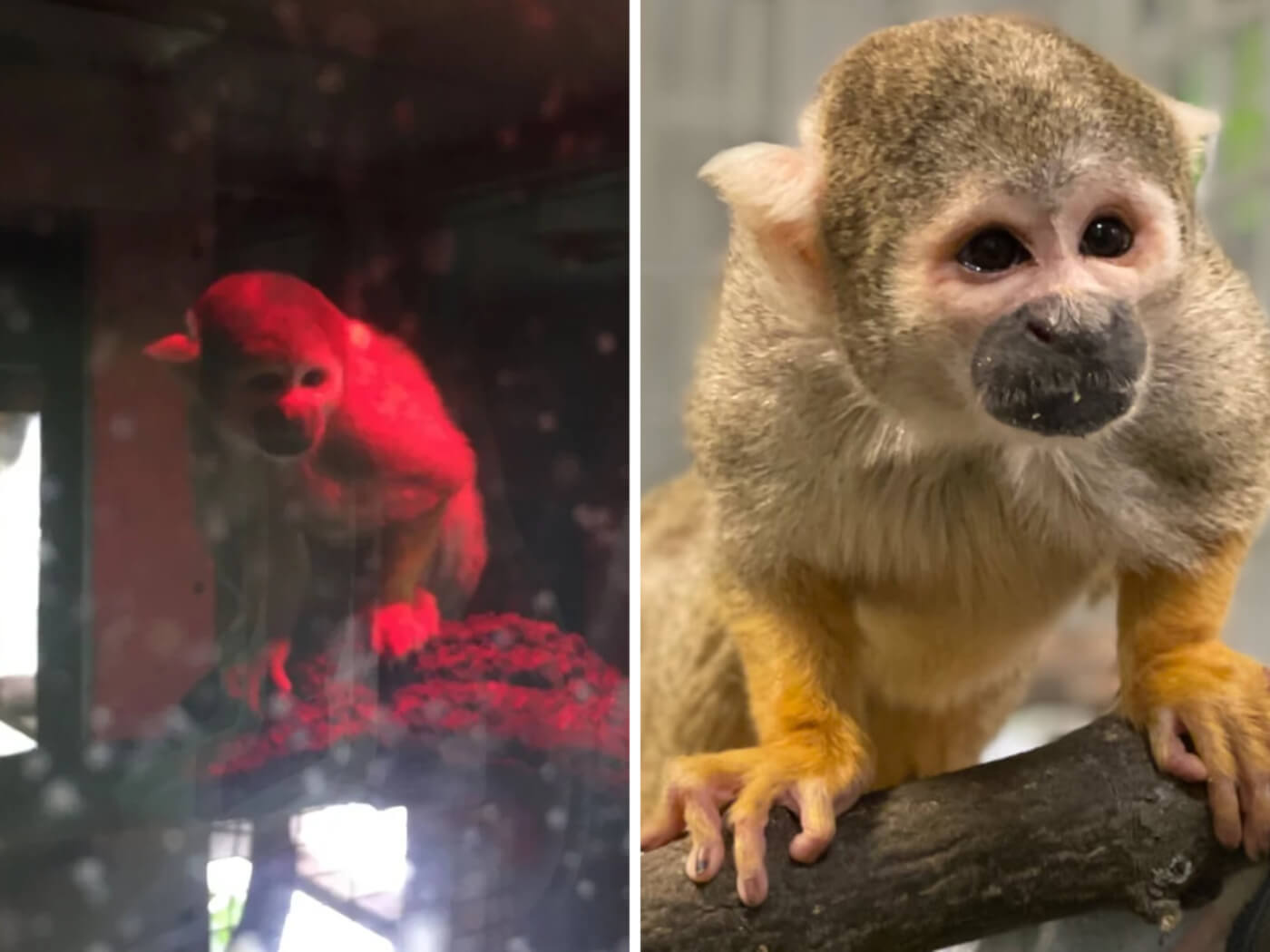
Asiatic Black Bears Sallie and Suzie
Tri-State’s owner confined Asiatic black bears Sallie and Suzie to a cramped cage with a filthy pool, but after a brief quarantine, they will have the chance to splash in fresh water and explore an expansive habitat, where they can do everything that’s natural and important to them. Sallie and Suzie are the 77th and 78th bears, respectively, PETA has rescued.
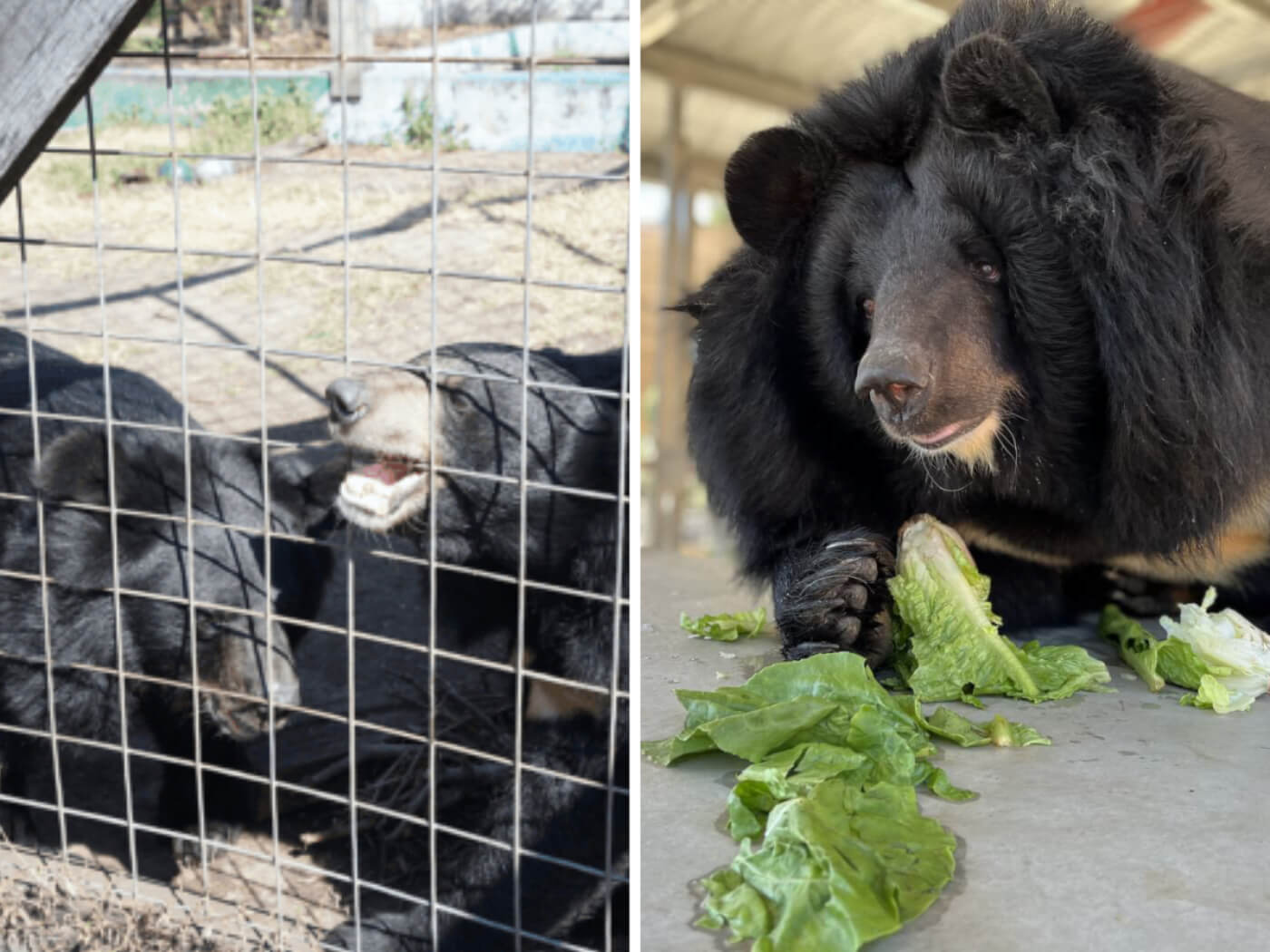
Princess the Goat
A goat named Princess is in quarantine at Poplar Spring Animal Sanctuary in Maryland, getting the care she needs for a respiratory infection and parasites. When she’s healthy, she’ll be able to join the other goats prancing around her new sanctuary home.
A Few Geese
These geese now have a pond full of clean water in which to stretch their wings.

Snorkel the Pig
Snorkel the pot-bellied pig has suffered for years with morbid obesity and a massive tumor—which Tri-State allowed to grow so large that it takes up his entire rear. Now, he will finally receive the veterinary care he deserves.
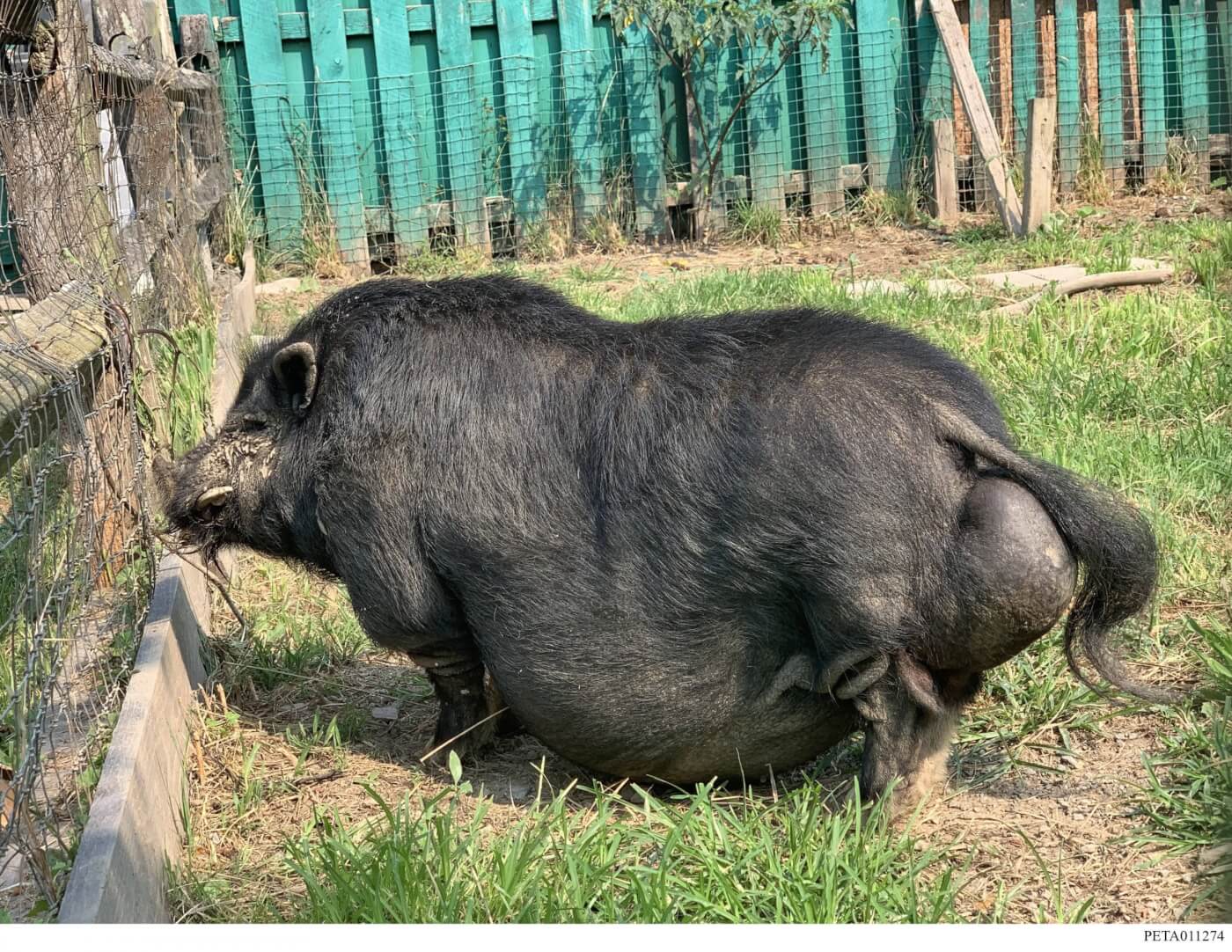
The Iguana Trio
Three iguanas will live outdoors in a lush, natural habitat with other iguanas, instead of being cooped up in a stuffy enclosure indoors.
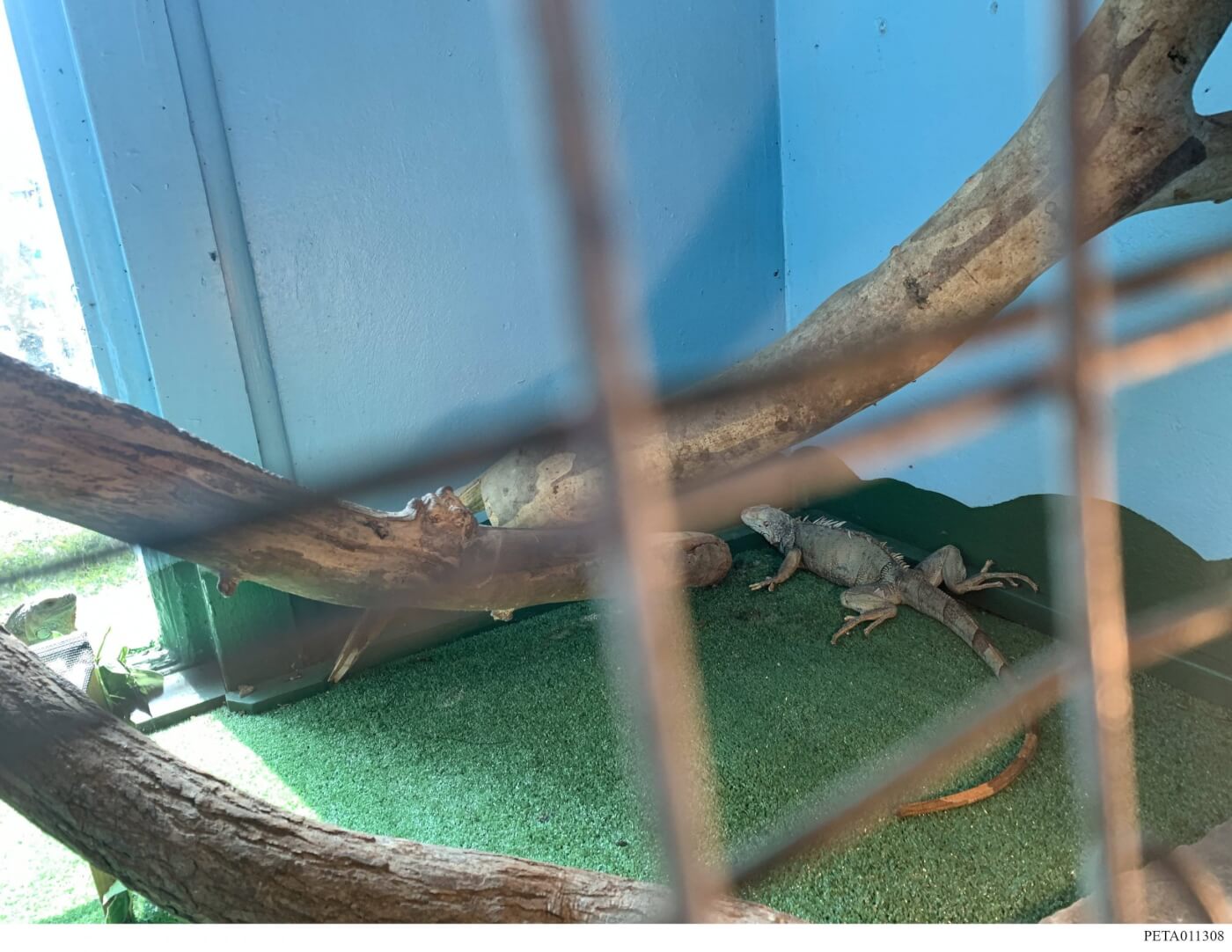
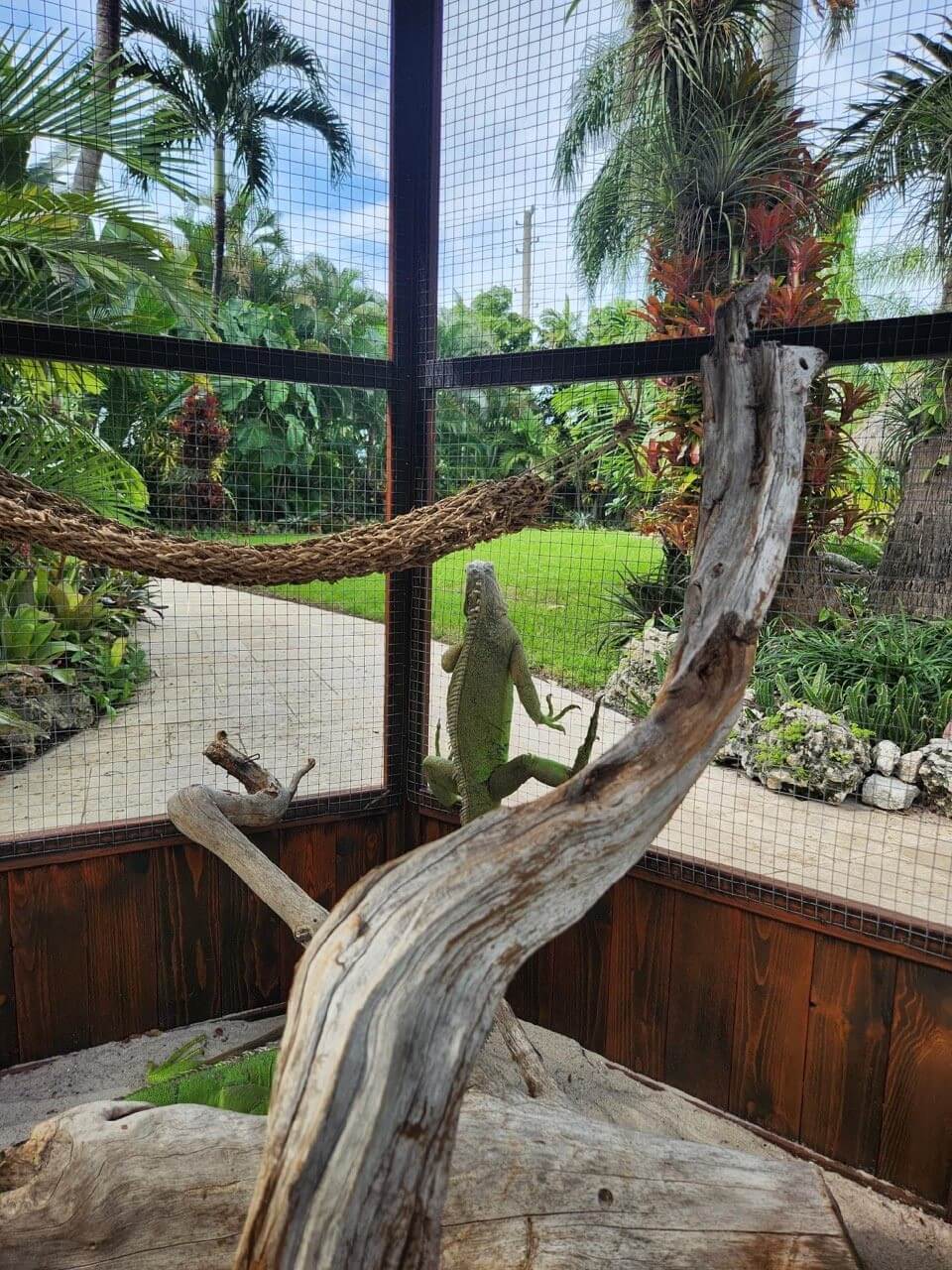
Red-Eared Slider Turtles
Red-eared slider turtles, previously confined to a filthy enclosure, have a beautiful sanctuary pond to swim in.
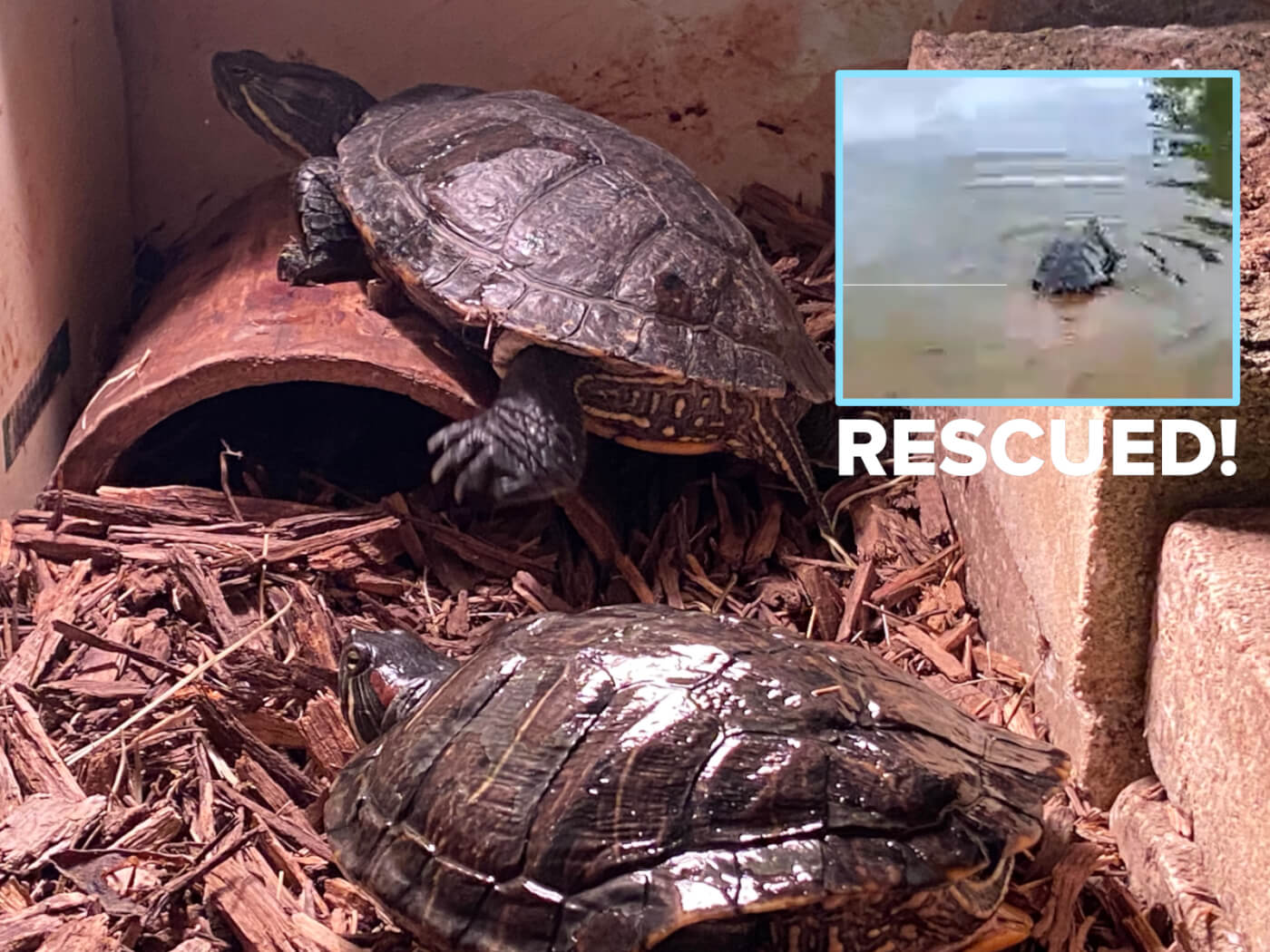
A Blue-Tongued Skink
A blue-tongued skink was found so severely neglected by Tri-State that his eyes were sunken and nearly sealed shut from dehydration—he got emergency intravenous fluids before being transferred and is receiving critical veterinary care now.
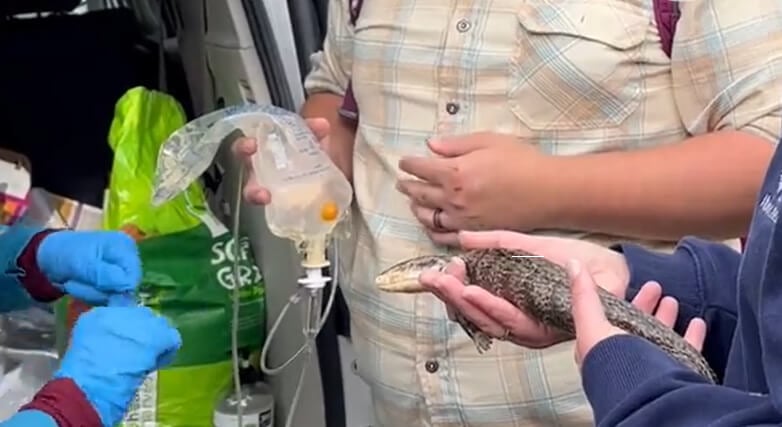
Stay tuned to see how Sallie, Suzie, Snorkel, and others are enjoying their new lives once they’ve settled in. You can keep up to date by following PETA on Twitter, Facebook, or Instagram.
A staggering 14 organizations from across the country led the rescue mission with PETA: Lions Tigers & Bears, the Cleveland Amory Black Beauty Ranch, the Peaceable Primate Sanctuary, Oakland Zoo, Detroit Zoo, Wildlife Rescue & Rehabilitation, Carolina Tiger Rescue, the Colorado Reptile Humane Society, Black Pine Animal Sanctuary, the Turtle Conservancy, Iguana Haven, Vine Sanctuary, Poplar Spring Animal Sanctuary, and The Wildcat Sanctuary.
PETA Blew the Lid Off Tri-State’s Extensive History of Animal Neglect and Mistreatment
PETA has been tracking the chronic neglect of animals at Tri-State for years. See just a few of the ways we started tumbling the dominoes to help close down the roadside hellhole.
In 2016, after PETA alerted the U.S. Department of Agriculture (USDA) to video footage showing a lion who appeared emaciated, the agency cited the facility for denying adequate veterinary care to the thin, ailing big cat. The roadside zoo announced in February 2017 that this lion had died.
In 2019, PETA won our Endangered Species Act lawsuit against Tri-State, which resulted in the transfer of three big cats to an accredited sanctuary and a ruling that prohibited the roadside zoo from ever again owning or possessing endangered or threatened species. Between the time we gave notice of the suit and the trial, five of the animals at issue in the case had died, including a tiger who was so ravaged by sepsis that pus-filled pockets had formed in her heart, tongue, and diaphragm. The judge described conditions at the facility as “fetid and dystopic.”
In 2020, we filed another lawsuit against Tri-State, alleging that its failure to provide all animals at the facility with adequate veterinary care, proper food, clean water, and other basic necessities violated state law and constituted a public nuisance. The settlement agreement over our public nuisance suit set the rescue in motion: PETA agreed to drop the case if Tri-State would close permanently, terminating its USDA license and allowing us to place most of the remaining animals at facilities of our choosing. We previously rescued three big cats and other animals from Tri-State, bringing the total number of animals we rescued from the facility to 78.
Help Other Animals Suffering at Roadside Zoos
While we celebrate this historic victory, PETA is going full steam ahead against other dingy roadside zoos that condemn our fellow animals to miserable conditions—even ones that pose as “sanctuaries.”
The Barry R. Kirshner Wildlife Foundation is one of these cruel facilities. Animals there are kept in cramped cages, and many of them display abnormal, repetitive pacing behavior due to apparent distress.
Take action below to tell the roadside zoo to send all the animals confined there to reputable facilities:

